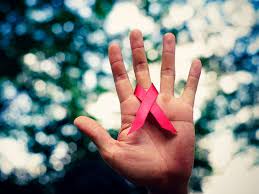Source: navhindtimes.in
PANAJI: A total of 11 acquired immune deficiency syndrome (AIDS) deaths have been reported in the state from January to July this year.
AIDS claimed a total of 31 lives in 2016, while the same number of people succumbed to the deadly disease in 2017. In 2018, the death toll came down to 21.
The latest data available with the Goa State AIDS Control Society (GSACS) reveals that a total of 192 new Human Immunodeficiency Virus (HIV) cases have been reported in the state from January to August this year while there are 14 HIV cases that have reached the stage of AIDS during the same period.
The figures indicate that the HIV cases, which were declining sharply from 959 HIV positive cases in 2009 to 345 in 2015, rose to 390 in 2017. However, the state witnessed a significant decline in 2018 wherein the new HIV cases recorded were 280.
In the year 2016, 30 cases of AIDS were registered followed by 55 cases in 2017. However, with a change in the treatment strategy and by providing antiretroviral therapy (ART) to the affected HIV patients at the very initial stage of the infection as per the guidelines of the World Health Organisation, from the year 2017, the state managed to bring the number of AIDS cases down to 29 in 2018.
The data reveals that 72 per cent of the cases detected in Goa during 2018 were in the age group of 15-49 years. In the same year, out of the total females infected, nearly 26 per cent belonged to the age group 15-34 years whereas around 28 per cent of the infected males were in this age group. Over 41 per cent infected males and about 50 per cent infected females belonged to the age group 35-49 years.
Between the years 1999-2018, sex has been the predominant mode of HIV transmission (83 to 93 per cent) followed by perinatal transmission of HIV (4 to 8 per cent).
According to the GSACS, HIV infection is prevalent in all parts of Goa and majority of the cases were reported in the four coastal talukas of Salcete (12.2 per cent), Mormugao (21.1 per cent), Tiswadi (7.8 per cent) and Bardez (7.8 per cent) in 2018.
To raise awareness, improve knowledge and understanding among the general population about AIDS infection and sexually transmitted diseases, routes of transmission and methods of prevention, the GSACS regularly conducts information, education and communication programmes.
The GSACS also conducts general education programmes on HIV/AIDS for youth organisations, voluntary bodies, government departments, women, high-risk groups, schools, colleges, industrial estate workers, etc.
